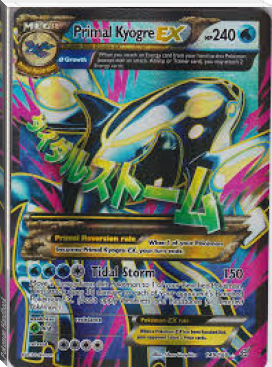LYSBETH by H. RIDER HAGGARD (best book club books for discussion txt) 📕

- Author: H. RIDER HAGGARD
Book online «LYSBETH by H. RIDER HAGGARD (best book club books for discussion txt) 📕». Author H. RIDER HAGGARD
Foy and his companion chatted merrily enough, if in a somewhat jerky fashion, but Martin attempted no talk. Only as he proceeded he was heard to mutter between his teeth, "Lucky the Pastor Arentz can't see us now. He would never understand, he is so one-sided." So at least Foy declared subsequently in Leyden.
Presently, at a hint from his lady, Foy turned down a side street, unobserved, as he thought, till he heard a mocking voice calling after them, "Good-night, Red Bow, hope you will have a fine supper with your Leyden shopboy."
"Quick," whispered Red Bow, and they turned another corner, then another, and another. Now they walked down narrow streets, ill-kept and unsavoury, with sharp pitched roofs, gabled and overhanging so much that here and there they seemed almost to meet, leaving but a ribbon of star-specked sky winding above their heads. Evidently it was a low quarter of the town and a malodourous quarter, for the canals, spanned by picturesque and high-arched bridges, were everywhere, and at this summer season the water in them was low, rotten, and almost stirless.
At length Red Bow halted and knocked upon a small recessed door, which instantly was opened by a man who bore no light.
"Come in," he whispered, and all four of them passed into a darksome passage. "Quick, quick!" said the man, "I hear footsteps."
Foy heard them also echoing down the empty street, and as the door closed it seemed to him that they stopped in the deep shadow of the houses. Then, holding each other by the hand, they crept along black passages and down stairs till at length they saw light shining through the crevices of an ill-fitting door. It opened mysteriously at their approach, and when they had all entered, shut behind them.
Foy uttered a sigh of relief for he was weary of this long flight, and looked round him to discover that they were in a large windowless cellar, well furnished after a fashion by oak benches and a table set out with cold meats and flagons of wine. At the foot of this table stood a middle-aged man, prematurely grey, and with a face worn as though by constant care.
"Welcome, Foy van Goorl," said the man in a gentle voice. "Many years have passed since last we met; still I should have known you anywhere, though I think you would not have known me."
Foy looked at him and shook his head.
"I thought so," went on the man with a smile. "Well, I am Hendrik Brant, your cousin, once the burgomaster of The Hague and its richest citizen, but to-day a hunted rat who must receive his guests in secret cellars. Tell me now, did my daughter, Elsa, reach your good father's house in safety, and is she well?"
So Foy told him all that story.
"As I thought, as I thought," said Hendrik. "Ramiro knew of her journey and guessed that she might carry some letter. Oh!" he went on, shaking his fist in a kind of frenzy, and addressing the two women who had played the parts of Red Bow and her servant, "who among you is the traitor? Can it be that you, whom my bounty has fed, betray me? Nay, girls, do not weep, I know that it is not so, and yet, in this city, the very walls have ears, yes, even this deep vault gives up its secrets. Well, if only I can save my fortune from those wolves, what do I care? Then they may take my carcase and tear it. At least, my daughter is safe--for a while, and now I have but one desire left on earth--to rob them of my wealth also."
Then he turned to the girl decked out in the gay clothes, who, now that the chase was over, sat upon a bench with her face hidden in her hand, and said, "Tell me your story, Gretchen," whereon she lifted her head and repeated all that happened.
"They press us hard," muttered Brant, "but, friends, we will beat them yet. Eat now, and drink while you may."
So they sat down and ate and drank while Hendrik watched them, and the man who had led them to the vault listened without the door.
When they had finished, Brant bade the two women, Red Bow and the other, leave the cellar and send in the sentry, replacing him as guards. He entered, a hard-faced, grizzled man, and, taking a seat at the table, began to fill himself with food and wine.
"Hearken, my cousin Foy," said Brant presently, "this is the plan. A league away, near to the mouth of the great canal, lie certain boats, a score or over of them, laden with trading goods and timber, in the charge of honest men who know nothing of their cargo, but who have orders to fire them if they should be boarded. Among these boats is one called the /Swallow/, small, but the swiftest on this coast, and handy in a sea. Her cargo is salt, and beneath it eight kegs of powder, and between the powder and the salt certain barrels, which barrels are filled with treasure. Now, presently, if you have the heart for it--and if you have not, say so, and I will go myself--this man here, Hans, under cover of the darkness, will row you down to the boat /Swallow/. Then you must board her, and at the first break of dawn hoist her sail and stand out to sea, and away with her where the wind drives, tying the skiff behind. Like enough you will find foes waiting for you at the mouth of the canal, or elsewhere. Then I can give you only one counsel--get out with the /Swallow/ if you can, and if you cannot, escape in the skiff or by swimming, but before you leave her fire the slow-matches that are ready at the bow and the stern, and let the powder do its work and blow my wealth to the waters and the winds. Will you do it? Think, think well before you answer."
"Did we not come from Leyden to be at your command, cousin?" said Foy smiling. Then he added, "But why do you not accompany us on this adventure? You are in danger here, and even if we get clear with the treasure, what use is money without life?"
"To me none, any way," answered Brant; "but you do not understand. I live in the midst of spies, I am watched day and night; although I came here disguised and secretly, it is probable that even my presence in this house is known. More, there is an order out that if I attempt to leave the town by land or water, I am to be seized, whereon my house will be searched instantly, and it will be found that my bullion is gone. Think, lad, how great is this wealth, and you will understand why the crows are hungry. It is talked of throughout the Netherlands, it has been reported to the King in Spain, and I learn that orders have come from him concerning its seizure. But there is another band who would get hold of it first, Ramiro and his crew, and that is why I have been left safe so long, because the thieves strive one against the other and watch each other. Most of all, however, they watch me and everything that is mine. For though they do not believe that I should send the treasure away and stay behind, yet they are not sure."
"You think that they will pursue us, then?" asked Foy.
"For certain. Messengers arrived from Leyden to announce your coming two hours before you set foot in the town, and it will be wonderful indeed if you leave it without a band of cut-throats at your heels. Be not deceived, lad, this business is no light one."
"You say the little boat sails fast, master?" queried Martin.
"She sails fast, but perhaps others are as swift. Moreover, it may happen that you will find the mouth of the canal blocked by the guardship, which was sent there a week ago with orders to search every craft that passes from stem to stern. Or--you may slip past her."
"My master and I are not afraid of a few blows," said Martin, "and we are ready to take our risks like brave men; still, Mynheer Brant, this seems to me a hazardous business, and one in which your money may well get itself lost. Now, I ask you, would it not be better to take this treasure out of the boat where you have hidden it, and bury it, and convey it away by land?"
Brant shook his head. "I have thought of that," he said, "as I have thought of everything, but it cannot now be done; also there is no time to make fresh plans."
"Why?" asked Foy.
"Because day and night men are watching the boats which are known to belong to me, although they are registered in other names, and only this evening an order was signed that they must be searched within an hour of dawn. My information is good, as it should be since I pay for it dearly."
"Then," said Foy, "there is nothing more to be said. We will try to get to the boat and try to get her away; and if we can get her away we will try to hide the treasure, and if we can't we will try to blow her up as you direct and try to escape ourselves. Or--" and he shrugged his shoulders.
Martin said nothing, only he shook his great red head, nor did the silent pilot at the table speak at all.
Hendrik Brant looked at them, and his pale, careworn face began to work. "Have I the right?" he muttered to himself, and for an instant or two bent his head as though in prayer. When he lifted it again his mind seemed to be made up.
"Foy van Goorl," he said, "listen to me, and tell your father, my cousin and executor, what I say, since I have no time to write it; tell him word for word. You are wondering why I do not let this pelf take its chance without risking the lives of men to save it. It is because something in my heart pushes me to another path. It may be imagination, but I am a man standing on the edge of the grave, and to such I have known it given to see the future. I think that you will win through with the treasure, Foy, and that it will be the means of bringing some wicked ones to their doom. Yes, and more, much more, but what it is I cannot altogether see. Yet I am quite certain that thousands and tens of thousands of our folk will live to bless the gold of Hendrik Brant, and that is why I work so hard to save it from the Spaniards. Also that is why I ask you to risk your lives to-night; not for the wealth's sake, for wealth is dross, but for what the wealth will buy in days to come."
He paused a while, then went on: "I think also, cousin, that being, they tell me, unaffianced, you will learn to love, and not in vain, that dear child of mine, whom I leave in your father's keeping and in yours. More, since time is short and we shall never meet again, I say to you plainly, that the





Comments (0)